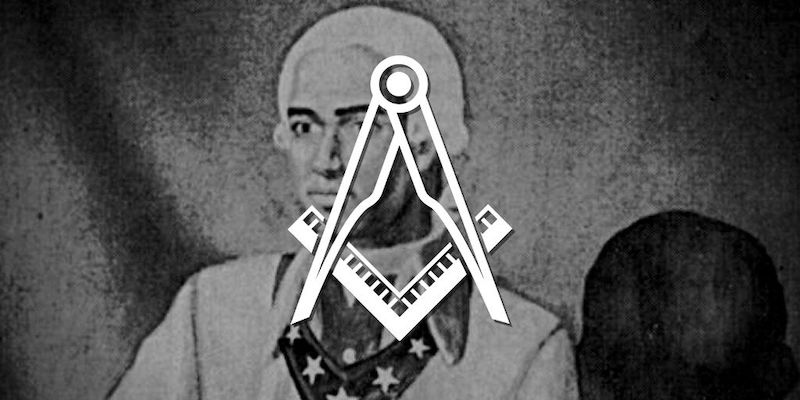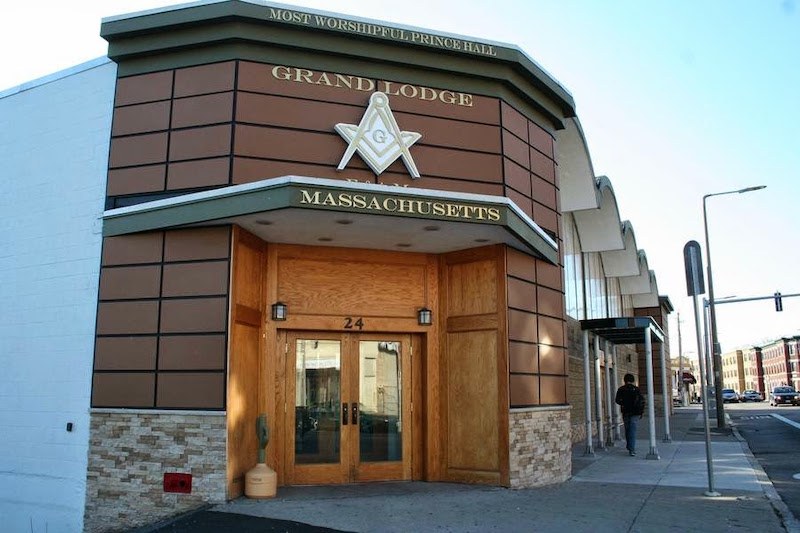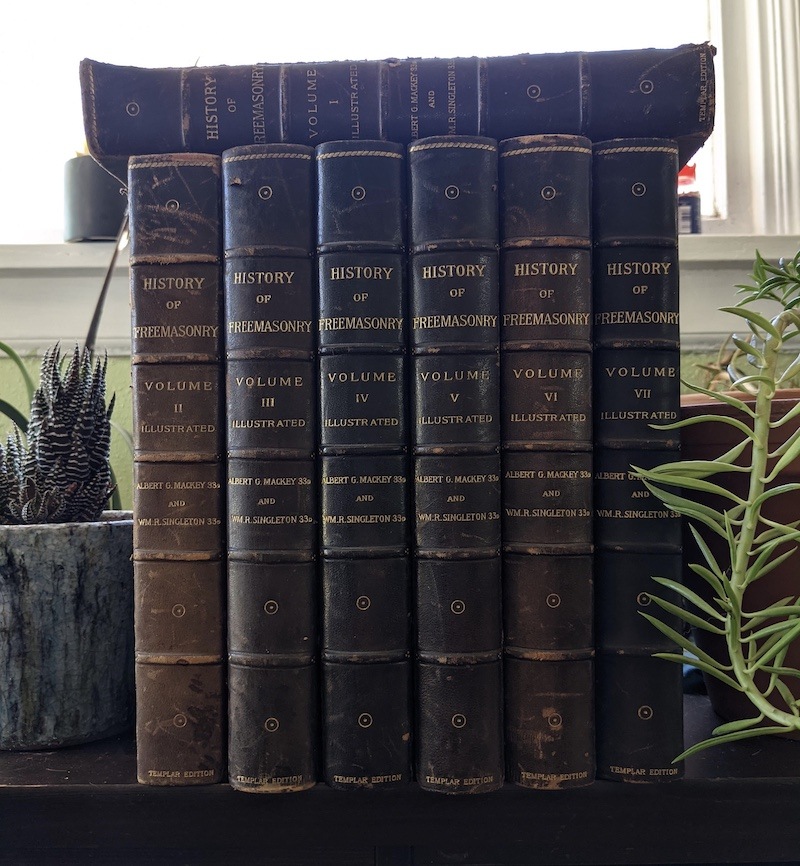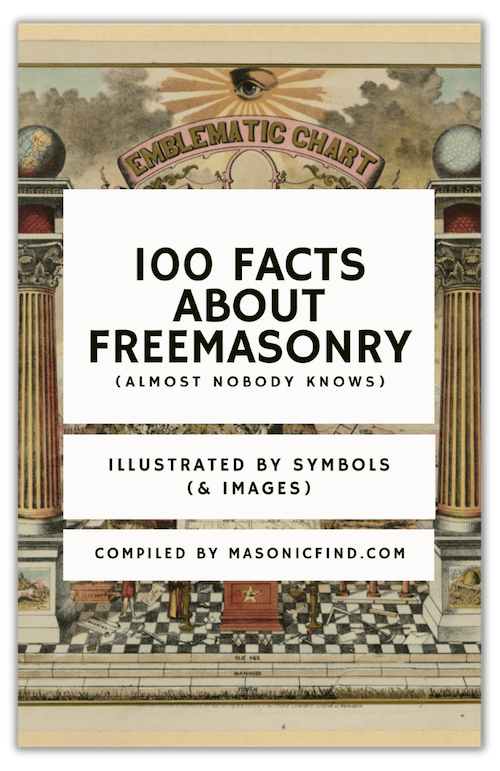Roughly half of the regular grand lodge jurisdictions in the United States (as well as others in Canada and elsewhere around the world) are named for Prince Hall, a 19th-century man influential on Masonry even today.
Who was Prince Hall?
He was an abolitionist, a Revolutionary War hero, and the inceptor of Prince Hall Freemasonry.

Early Life and Enslavement
The earlier into Hall’s life that one delves, the murkier the details of his past become.
For example, we do not know for sure where/when he was born nor who his parents were; it is estimated that he was born sometime between 1735 and 1738.
Though freeborn, he was made a slave from 1749 to 1770 for William Hall; though technically legal, he was always still accounted and considered as a free man by his contemporaries.
He was freed a month after the Boston Massacre.
Abolitionist Activism
Hall encouraged his peers (free and enslaved) to fight for American Independence, hoping that the involvement of African-Americans would lead to freedom for all.
- He himself served in the Continental Army, and it is believed that he fought at Bunker Hill.
- He also made political progress to end slavery, improve and protect African-American rights.
- He campaigned for schools for black children to be established in Boston.
In 1787, Hall unsuccessfully petitioned the Massachusetts legislature to send black people back to Africa where they could be fully free and serve as trading partners.
Later that year, Hall’s petition for black public-school funding was denied, and remained so until 1796, when Boston approved his request to fund black schools but said that they did not have a building; Hall, therefore, let the school operate from his home.
In 1788, Hall also helped Massachusetts pass legislation outlawing the slave trade and punishing those involved with it.

Freemasonry
On 6 March 1775, Prince Hall was initiated with fourteen other men of color in Lodge No. 441 in Boston Harbor, MA.
This is the first known occasion of black men being initiated in American Masonry.
This lodge, being an Irish military lodge that traveled with the 38th British Foot Infantry, left Boston the next year due to the conflict between America and England; shortly before this departure, these fourteen men were issued a permit by the worshipful master to meet as a lodge; it did not yet have the right to confer degrees on other people, however.
This became African Lodge No. 1, which was organized on 3 July 1776 with Prince Hall as its worshipful master.
On 2 March 1784, this lodge sent a petition to the Grand Lodge of England for a warrant so that it could organize a regular lodge and therefore be empowered with all the rights pertaining thereto (including initiating new members).
The Grand Lodge of England responded by issuing a charter on 29 September 1784 for this group, newly designating it as African Lodge No. 459.
Due to the prosperity and growth of this lodge, it soon became the first Black Provincial Grand Lodge in 1791, with Prince Hall as its Provincial Grand Master.
In December 1808, three of the “African” lodges met to organize the African Grand Lodge.
In 1827, African Grand Lodge declared its independence from the United Grand Lodge of England and all other lodges. In 1847 and in honor of the influence that Hall had had on society, the name of African Grand Lodge was changed to Prince Hall Grand Lodge.
Initial Controversy of Prince Hall Grand Lodges

According to Dr. Albert Mackey’s Encyclopædia of Freemasonry (under the entry “Negro Lodges,” as they were commonly called at that time), the Masonic legality of all lodges and grand lodges emanating from African Grand Lodge (and later Prince Hall Grand Lodge) was in question for the following reasons:
“The subject of Lodges of colored persons … was for many years a source of agitation in the United States, not on account, generally, of the color of the members of these Lodges, but on account of the supposed illegality of their Charters. The history of their organization was thoroughly investigated, many years ago, by Bro. Philip S. Tucker, of Vermont, and Charles W. Moore, of Massachusetts, and the result is here given, with the addition of certain facts derived from a statement made by the officers of the Lodge in 1827.
“Prince Hall and thirteen other [men of color] were made Masons in a military Lodge in the British Army then at Boston, on March 6, 1775. When the Army was withdrawn these [men of color] applied to the Grand Lodge of England for a Charter and on the 20th of September, 1784, a Charter for a Master’s Lodge was granted, although not received until 1787, to Prince Hall and others, all colored men, under the authority of the Grand Lodge of England. The Lodge bore the name of ‘African Lodge, No. 429,’ and was situated in the city of Boston. This Lodge ceased its connection with the Grand Lodge of England for many years, and about the beginning of the present century its registration was stricken from the rolls of the United Grand Lodge of England, when new lists were made as were many other Lodges in distant parts of the world, its legal existence, in the meantime, never having been recognized by the Grand Lodge of Massachusetts, to which body it had always refused to acknowledge allegiance.
“After the death of Hall and his colleagues, to whom the Charter had been granted, the Lodge, for want of some one to conduct its affairs, fell into abeyance, or, to use the technical phrase, became dormant. After some years it was revived, but by whom, or under what process of Masonic law, it is not stated, and information of the revival given to the Grand Lodge of England, but no reply or recognition was received from that body. After some hesitation as to what would be the proper course to pursue, they came to the conclusion, as they have themselves stated, ‘that, with what knowledge they possessed of Masonry, and as people of color by themselves, they were, and ought by rights to be, free and independent of other Lodges.’ Accordingly, on the 18th of June, 1827, they issued a protocol, in which they said: ‘We publicly declare ourselves free and independent of any Lodge from this day, and we will not be tributary or governed by any Lodge but that of our own.’ They soon after assumed the name of the ‘Prince Hall Grand Lodge,’ and issued Charters for the constitution of subordinates, and from it have proceeded all the Lodges of colored persons now existing in the United States.
“Admitting even the legality of the English Charter of 1784—it will be seen that there was already a Masonic authority in Massachusetts upon whose prerogatives of jurisdiction such Charter was an invasion—it cannot be denied that the unrecognized self-revival of 1827, and the subsequent assumption of Grand Lodge powers, were illegal, and rendered both the Prince Hall Grand Lodge and all the Lodges which emanated from it clandestine. And this has been the unanimous opinion of all Masonic jurists in America.
“[However, Masonry has spread among the [men of color] until now they have Lodges and Grand Lodges in most of the States and in Canada and Liberia. As they wear emblems of all the other bodies it is presumable thy have them as well.]”
Despite this early, tumultuous perception of the issue, most State Grand Lodges (which term, for the purposes of this article, we will use to differentiate from Prince Hall Grand Lodges that share the same geographical areas) and Prince Hall Grand Lodges have extended to each other recognition of regularity and the right hand of fellowship.
There are still a few places in the American South where recognition is withheld (either by the State Grand Lodge or by the Prince Hall Grand Lodge) and/or on a limited, trial basis.
Death
Prince Hall died on 4 December 1807, just two months before the slave trade was formally and permanently ended on 1 January 1808.
He died as a property owner with full voting rights.
Conclusion
Today, there are 45+ grand lodge jurisdictions that trace their authority back to this first Prince Hall Grand Lodge, and 5,000+ lodges under these jurisdictions.
There are few men in history who have had such a profound influence on society in general (and Freemasonry in particular) as Prince Hall.
He was truly an American treasure and worthy to be called “Brother.”

FREE DOWNLOAD: 100 FACTS ABOUT FREEMASONRY (ALMOST NOBODY KNOWS)
Join the 10,000+ Brethren from around the world inside our weekly Masonic newsletter and get our best selling ebook for free (usual value: $20).
This article was written for MasonicFind.com by Brandon Cole, SW.
Great history, thanks
Glad you enjoyed it Bro Kelvin.
Have a great day! 😀
A beautiful piece of history. I am an American Mason living in the south United States. I belong to an old southern masonic lodge in a small southern city. I have a neighbor that is a Prince Hall Mason and he knows that I am a Mason. It’s unfortunate that we cannot communicate with each because of the atmosphere in our particular lodges. Such a pity.
Oh that’s such a pity 🙁
Thank you for the light!!
Thanks for recognition for the Prince Hall Family. This Men & Women had a lot to do with American History. Nice work.
That is a nice knowledge there, a lot of that still going on today where some of the Scottish Rite hall are telling Afro-American to go Prince Hall . There reasoning is you’ll feel better with your on kind that is what I was told. We still have to deal with racist ideology no matter where we go. Even thou it is 2016 people are seeing so much negativity in the news and here in the United States. The state I live in a lot of our people living up to all the stereotype type, love to blame everyone else for there problems and mistake. We as a culture need to take the our responsibility seriously we need to start moving forward not backward.
It’s a shame that Prince Hall bro.can’t be recognized as AF&AM I am sure they would want to be recognized by 4 letter lodges I have friends in PH and can’t labor with their lodge or anything such a shame they have a rich history that can be shared with all just sad
Found the article enlighting.
Very enjoyable reading and I thank you for your article. Over the years I have witnessed the change and growth in my lodge. We have tried to welcome all freemasons to come together but hopefully the day will come. Again thank you.
This article is pretty old but still provides a good introduction to Prince Hall Masonry for the unaware. However, there is an error of fact regarding the date & event of 1791 when allegedly Prince Hall was appointed a Provincial Grand Master of Masons (English Constitution).
This so called event has been debatable, and has not been verified to date.
I am a Prince Hall Free and Accepted Mason and I thoroughly appreciate the history lesson More of information like this need to be brought up about what this man has done and the brothers that came with him
I published a book called “Divine Intervention why me”. As a Mason for over 35 years, you know I can not lie to another Mason, therefore, my spiritual encounters are true and real. The reason I am posting this is because I met Jesus four times. The third time I met him and he gave me some advice. His words and not mine. “Seeks the help of the Masons”. I am still at a lost of why he said that. I communicated with several lodges and NEVER received a response from any of them. I’m going to assume that the Lord wants me to share my encounters with every lodges. I really don’t know. Since this is a Mason site, “I need your help”. No, I don’t want anyone’s money, but I would like to see Masons around the world read my book. The book will be available around February. I am willing to come to you whether it’s to share or book signing. I live in the Las Vegas, NV area, so there should not be any expenses on me or you. Outside the area, you may need to get involved in the transportation and or lodging. It’s up to you. I don’t charge. Thank you. Vinnie Esposito
Even though I now belong to a “main stream” lodge, I was originally introduced to Freemasonry by a brother
from a PHA lodge in CA. What an adventure! I learned SO
much about my African American Brother’s rich history…and the African American’s contributions to our society, that we take for granted, and just don’t think about. Whether you be lack or White…I strongly suggest you read the assorted books like: Black Compass & Square, The History of the Buffalo Soldiers,
The Masonic Life of Prince Hall, then re-watch the movie: Glory. I was totally amazed with the rich history we, as a country, was…and is blessed by the brethren’s commitments and integrities. I wouldn’t trade my enlightenment for anything.
Building human need to adopt all the best hand until the Justice and Equality is achieved everywhere
Greetings in the name of the Grand Architect of the Universe!
I am a Prince Hall Mason and this article is AWESOME!!! I met a Brother Mason that is a member of AF & A Lodge in GA. He was traveling through MN when I live in Grand Forks, ND. He too wouldn’t communicate with me because I am a black mason until…..I was 1st officer for Mesaba Airline (co-pilot). So when I greeted him on the phone, I saw his light, greeted him with hand shake and he rejected me. I was hurt but understood. See in ND, White and Black masons did away with not working together by having joint degree work together and join each other’s lodge. However, we were delayed by whether getting back to the Twin Cities, MN and he missed his connecting flight. Northwest, whom we are a feeder airline for in there normal mess up’s, left a voucher for him to stay in a hotel 2 miles from the airport, but because of the snow storm, the airport was closed. He had no way to get to his hotel. So after I post flight check the plane and finished our end flight logs, I noticed this brother standing at the counter upset about his situation. At first I just walked away, BUT my OBLIGATION wouldn’t allow me too. Since this was my home base, I had my Explorer and took him to his hotel, picked him up in the morning and made sure he got back to the airport in time for his flight. He was so surprised at that I did, after the way he treated me, that he demanded that his lodge change, or he would demit to a lodge that acknowledged Price Hall Masons.
WOW thanks for sharing Bro Frank. Much appreciated!
Greetings brethren, I am an English brother who is a member of a Prince Hall lodge in the UK. Our Grand Lodge is recognised as regular by the GLE and I am able to visit English Lodges, I am always made to feel welcome when I attend, on one occasion I was asked to give a short talk about Prince Hall Masonry.
What I have realised is that although our rituals may differ there is no real difference we all take the same obligations.
We are when all is said and done members of the same great fraternity.
Awesome 😉 Thanks for sharing George 🙂
I love being a Prince Hall mason its the only way to go as a black man.
THumbs up! Glad to have you here Bro.
I am Past Master and Prince Hall Mason in CA. I really enjoyed this article. Thank you.
You’re very welcome. Thanks for dropping by 😉
I am a Prince Hall Mason in Atlanta GA.
Nice and informative article. We must remember that it is The Fatherhood of God and the Brotherhood of Man, one day we will meet together on the level as upright Men and Masons.
Couldn’t have said it better !!
As a Mason from A four letter lodge in CA., we are blessed for what Prince Hall did for us, one day we will all be able to fellowship together. Great article.
I am a 40+ year member of Freemasonry & a “Past” in all parts of the York Rite. When I was first made a Mason Prince Hall Affiliated Masons were considered clandestine by my Grand Lodge. While change comes slowly in our ancient fraternity, it does eventually happen, and I am pleased to say that my Grand Lodge eventually saw the light & arranged mutual recognition with PHA Masonry. So Mote It Ever Be.
Great article, although some of the information was incorrect.
Thank you very much for sharing your thoughts brother.
I agree
What do it takes to become a freemason
You can read about it here: How To Join The Freemasons.
This was a great article. I’ve often wondered about Prince Hall and my African American Brothers. I belong to a Lodge in a small town in Indiana. We don’t have any African American brothers in my Lodge but we have a Prince Hall Lodge in town.
What is African American?
Very interesting. Would like to learn more
Subscribe to our newsletter so we can update you when we publish soemthign new.
Chris Lee
I love our history and I am a PHA Masons in & out….Delta Lodge #519 Deerfield Beach, FL
A beautiful brotherhood we all share and a great history to remember. We are a family of one as we build ourselves to be better men no matter what race. Downey United 220 in California.
SMIB!
When I was going through degrees in 1961 FA&AM in Scotland, Paisley St Mirren 129 was visiting Lodge Moorpark 1263 to do a degree. One of the officers was from Ghana, was black and you could not have met a nicer person as a brother. When I came to the California I could not believe I could not attend a lodge of blacks, this surprised me as I was not aware that whites were not allowed to visit PH lodges as in Scotland it did not matter. I don’t think they had PH that we knew off.
thanks for historical background so beautiful iam appreciate
You are welcome 🙂
Really great Story.
Have Been looking for Prince Hall Mason’s information in St.Louis area.
Never get an answer.
We have a lot of old Cemetery’s that are African that need names.
Prince Hall Mason’s And Mason’s had some kind of relationship in the early 1850-60s .
You can tell by the property that was given after Civil War.
One of My Grandfather’s was Thomas Payne he thought freedom for ALL.
Brother Rick
Great …. Story, several of my coworkers are P.Hall and I would like to talk to them about masonry…hopefully one day soon we can get over division and work as a whole we cannot do better for mankind if we are not united. I have a great respect for P.Hall, they take masonry very seriously as it shall be…
I am an IF&AM born and raised in the south in my youth I had a few run ins with PH masons some lodges were shut down because of bad leadership got into it with drug dealing masons told them they didn’t deserve to be a part of any lodge. They disrespected everything we stand for!!! I had some bad experiences with PH in my youth but as I am older I realize how ever you’re affiliated we’re still brothers and took the same oath and obligation I’ve also met wonderful PH brothers. We are all brothers!!! No matter race creed or color!!! SMIB
SMIB!
This is refreshing to know our history in masonry